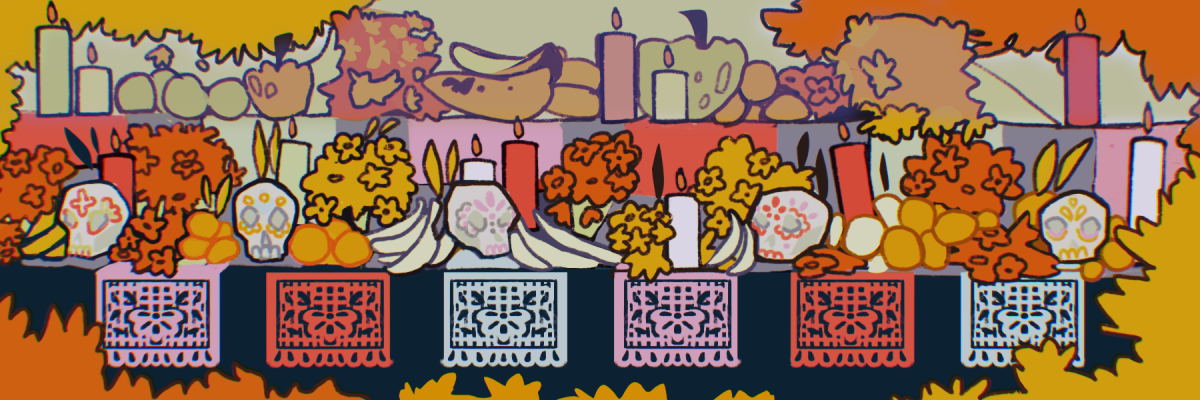The “Dia De Muertos Symposium: ‘Emotional Nepantla’,” a two-day event presented by the Center for U.S.-Latin America Initiatives, or CUSLAI, highlighted the internal struggles of living between two cultures as an American Latino in the United States.
The symposium included a storytelling event on Nov. 1 and a CUSLAI community digital archive project breakfast with Delegad@s, graduate students involved with the center. Nov. 2 featured a lunch panel event discussion with U.S.-Mexico border author and advocate Francisco Cantu as well as environmental border advocate and singer/songwriter Rita Cantu. CUSLAI also has a “Dia de Muertos Living Altar” exhibit available to students in the AHT Gallery until Nov. 14.
“We’re both research and an advocacy program for the university for the Latin American community,” Delegad@s fellow Isabella Palazuelos said. “We specifically focus a lot on border work. We interview people who have experienced crossing the border.”
UTD has an 18% Hispanic population among undergraduates and a 13% Hispanic ethnicity overall as of 2022. However, The Mercury published a story with survey evidence showing many Hispanic or Latino students do not feel represented on campus. Another Delegad@s fellow, Saul Vicente Leon Dubon, said that there aren’t enough classes available to these students.
“Bring in more faculty and strengthen the Latin American program, not just in history or humanities, but also in art and political science,” Dubon said. “We can have fellowships or scholarships to encourage students to study and research more issues regarding Latin America.”
Dia de Muertos is a Mexican holiday that commemorates the dead, but these events were open to all students of different ethnicities and races to bridge the barriers between one another. The Dia De Muertos Symposium was meant to transcend constructed barriers of culture, space and time in the same way that Dia de Muertos breaks down the barrier between the afterlife and the living world.
“I think that anybody, no matter what you are, you’re able to get something out of it [the events],” Delegad@s fellow Isaac Del Bosque said. “We’re trying to include everybody and hopefully, everybody can learn from each other.”
The event captured Dia de Muertos’ atmosphere as an intimate family tradition. Music, storytelling, food and drink came together to make the holiday fun and festive.
“The most important thing is to show the name of our center to students,” Dubon said. “One part of this event is to commemorate the traditions and whatnot, but also give support to the center, and perhaps the university can hire more faculty that deals with Latin Americans and to have a bigger presence on campus.”







